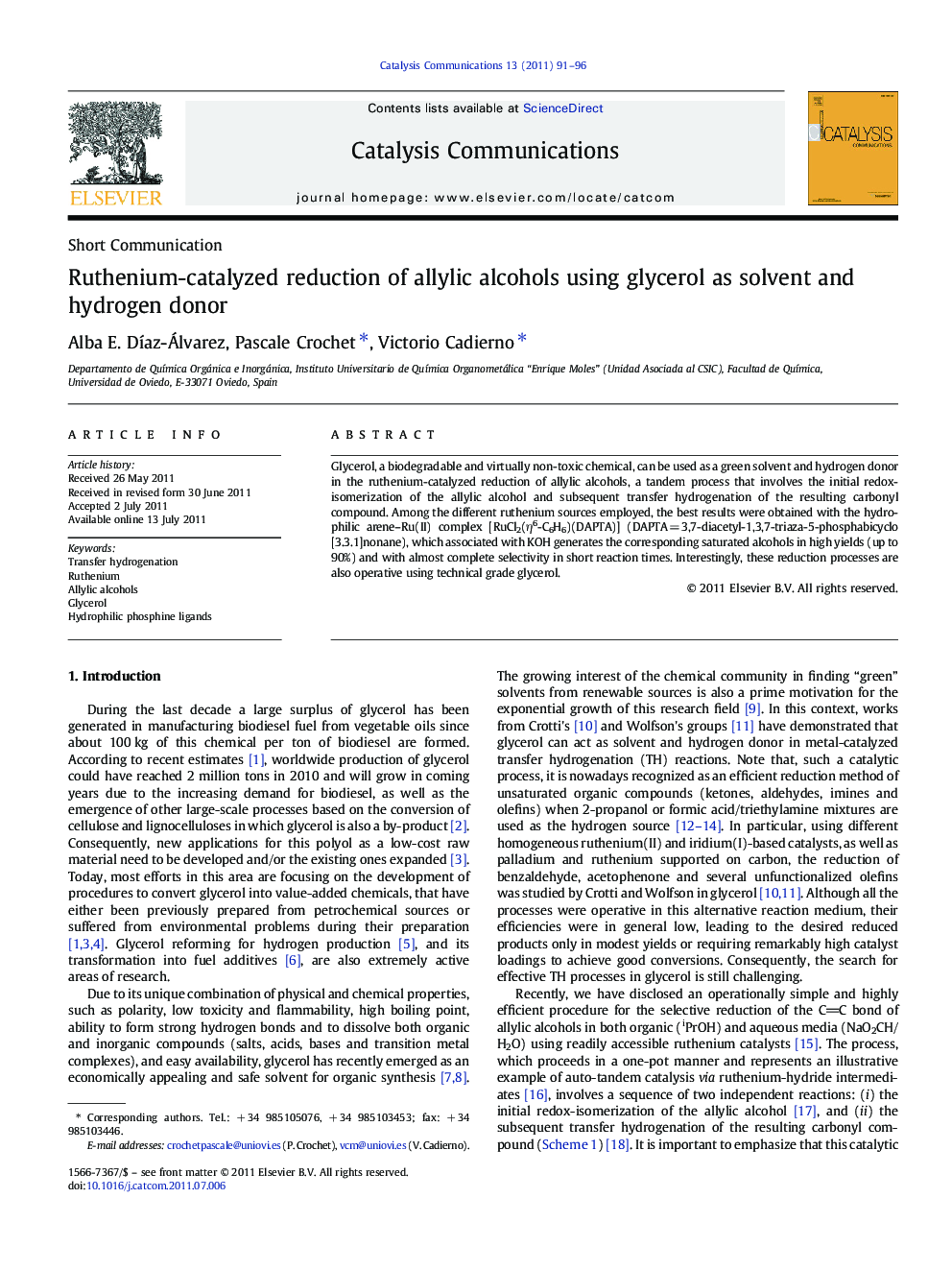| کد مقاله | کد نشریه | سال انتشار | مقاله انگلیسی | نسخه تمام متن |
|---|---|---|---|---|
| 50240 | 46785 | 2011 | 6 صفحه PDF | دانلود رایگان |

Glycerol, a biodegradable and virtually non-toxic chemical, can be used as a green solvent and hydrogen donor in the ruthenium-catalyzed reduction of allylic alcohols, a tandem process that involves the initial redox-isomerization of the allylic alcohol and subsequent transfer hydrogenation of the resulting carbonyl compound. Among the different ruthenium sources employed, the best results were obtained with the hydrophilic arene–Ru(II) complex [RuCl2(η6-C6H6)(DAPTA)] (DAPTA = 3,7-diacetyl-1,3,7-triaza-5-phosphabicyclo[3.3.1]nonane), which associated with KOH generates the corresponding saturated alcohols in high yields (up to 90%) and with almost complete selectivity in short reaction times. Interestingly, these reduction processes are also operative using technical grade glycerol.
The use of glycerol as solvent and hydrogen donor in the reduction of the C═C bond of allylic alcohols catalyzed by the hydrophilic ruthenium(II) complex [RuCl2(η6-C6H6)(DAPTA)] (DAPTA = 3,7-diacetyl-1,3,7-triaza-5-phosphabicyclo[3.3.1]nonane) is described.Figure optionsDownload as PowerPoint slideHighlights
► We demonstrate that glycerol can be used as a green solvent and hydrogen donor in the catalytic reduction of allylic alcohols.
► The catalytic process is operative even when technical grade glycerol is employed.
► The use of this inexpensive reaction medium enables easy product separation.
► It also allows the effective recycling of the ruthenium catalyst.
Journal: Catalysis Communications - Volume 13, Issue 1, 5 October 2011, Pages 91–96